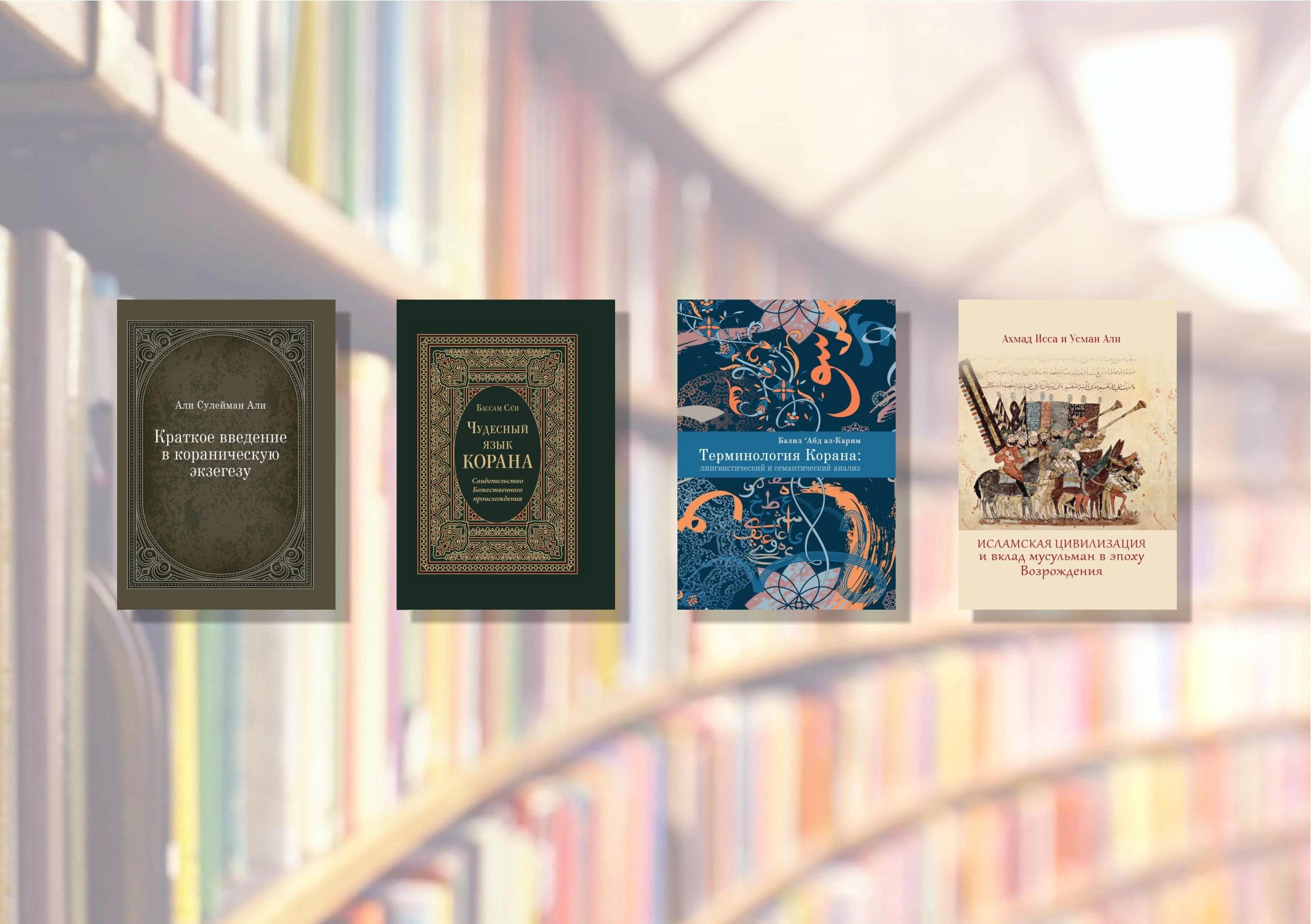The International Institute of Islamic Thought and the Institute of Knowledge Integration are pleased to announce four new publications in Russian that will be useful to the widest range of readers.
Briefly about the books:
1. Ali Suleiman Ali. A Brief Introduction to Qur'anic Exegesis
The purpose of Qur'anic exegesis (tafsīr) as the most important of the Islamic sciences is to arrive at an accurate understanding of the Qur'an and the true meaning of his verses. Since the Prophet left our world, many scholars have worked tirelessly wanting to present to Muslims and all people a correct understanding of the Qur'an. This understanding should be as complete as possible then it becomes conceivable to try to expand the knowledge of the guidance that is contained in Revelation, as well as a way of life corresponding to its principles.
This work traces the evolution of Qur'anic exegesis from the time of the Prophet, as well as his companions and followers, early mufassirs (exegetes) with their independent tafsīrs, and up to the present age.
The book outlines the content of the works of prominent interpreters; different methodologies are compared and criticized. As a result, we get a broad and important summary of the topic. This edition is a valuable complement to the understanding and study of the Qur'anic text.
The book is available for reading at the following link: https://ikiacademy.org/resourcedetails/647
2. Bassam Saeh. The Miraculous Language of the Qur'an: Evidence of Divine Origin
Throughout history, Muslim scholars have written extensively about both the aesthetic elements of the marvelous language of the Qur'an, as well as about its other literary features, content, and the amazing scientific nature of the ayats. However, no one has yet tried to illuminate what the author defines as the secret aspect of the Qur'anic language, which Muslims hardly think about, perceiving Revelation as something familiar and long known. This secret aspect is as follows: although the Qur'an was sent down in Arabic, it was a new Arabic language amazing for the Arabs who heard it for the first time. It is the purpose of this book to explore what this novelty was.
The book is available for reading at the following link: https://ikiacademy.org/resourcedetails/645
3. Balil Abd al-Karim. Qur'anic Terminology: A Linguistic and Semantic Analysis
There is no way to properly understand the Qur'an or clarify the meaning of its verses as accurately as possible without learning the Qur'anic terminology and related concepts. Together they not only summarize the universal truths of the Islamic religion (the great moral code), but also enliven the Qur'anic text, giving it vitality, precision and flexibility. This study aims to provide an extensive glossary of key Qur'anic terms and to establish the meanings of these terms, both semantically and linguistically, in their Qur'anic context. The book is structured in such a way that facilitates the understanding of the Qur'anic text. The author consistently and logically guides the non-professional reader through the various nuances of the use of terms and their meanings, depending on the context, as well as from the problems and issues in relation to which these terms are used. All this allows us to better understand the depth of the Qur'an and what makes it a linguistic and literary marvel.
The book is available for reading at the following link: https://ikiacademy.org/resourcedetails/646
4. Ahmed Essa and Othman Ali. Studies in Islamic Civilization: The Muslim Contribution to the Renaissance
This study, in an effort to prove that without the huge contribution of the Muslim world, the Renaissance in Europe was hardly possible, relies on the work of Western scholars. For a thousand years, Islam has been the defining religion of one of the world's leading civilizations, which covered a geographic area much larger than any other. This civilization saved knowledge that, if not for the Islamic world, would have been lost forever. The authors make a convincing attempt to correct the historical injustice and restore those truths concerning the Golden Age that heralded the beginning of the Islamic Renaissance and accordingly the onset of the Renaissance in the West. We believe that this book will be of interest to both Renaissance scholars and to a wider readership.
The book is available for reading at the following link: https://ikiacademy.org/resourcedetails/648









